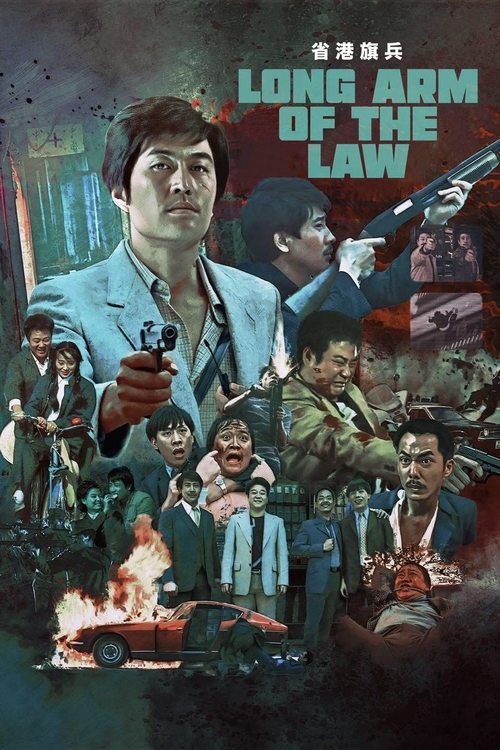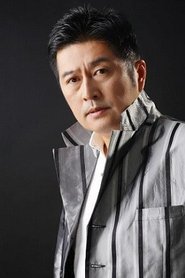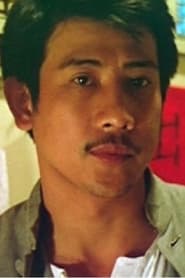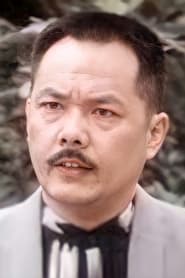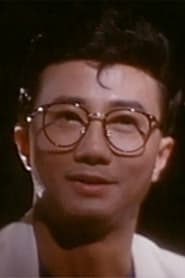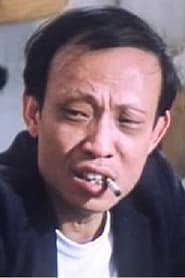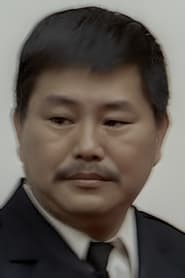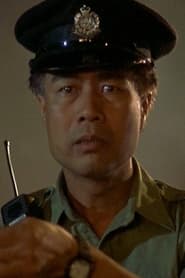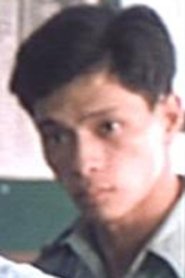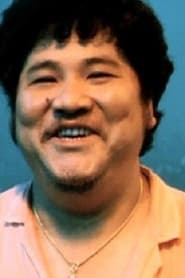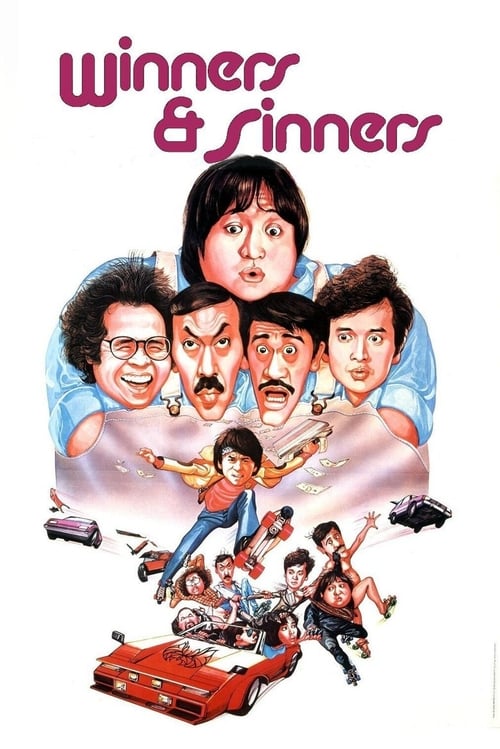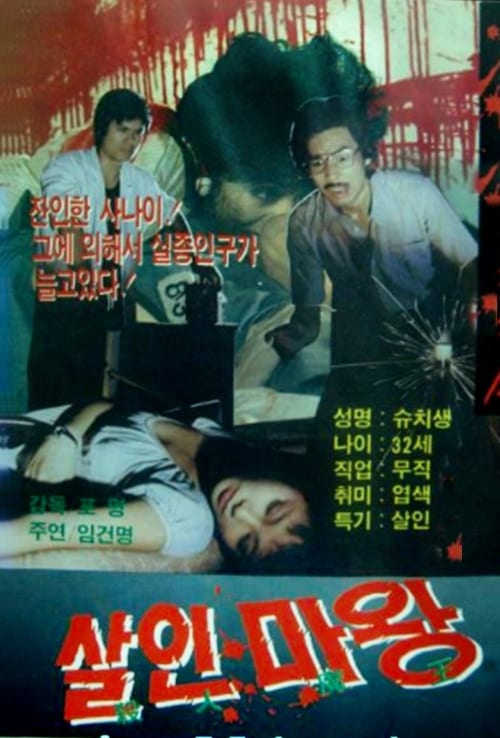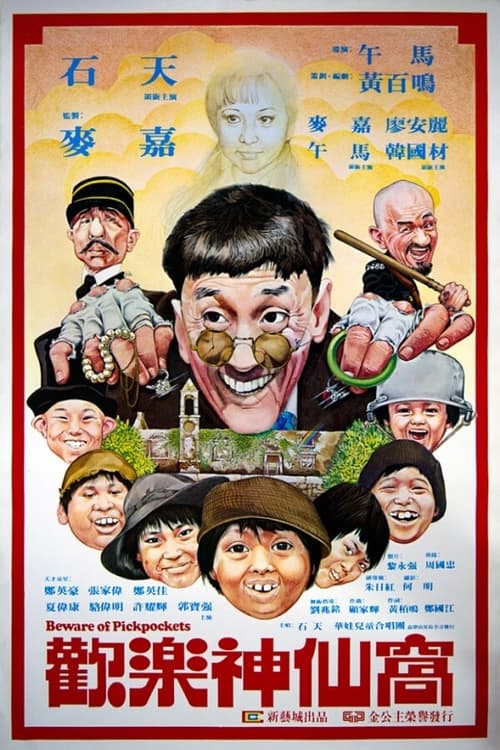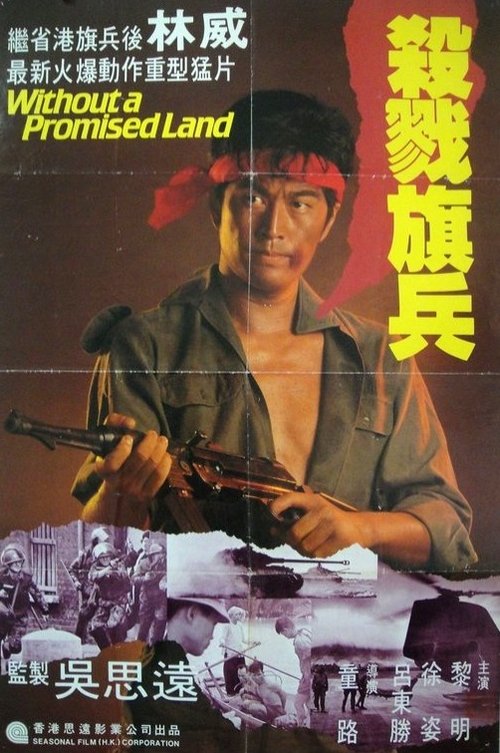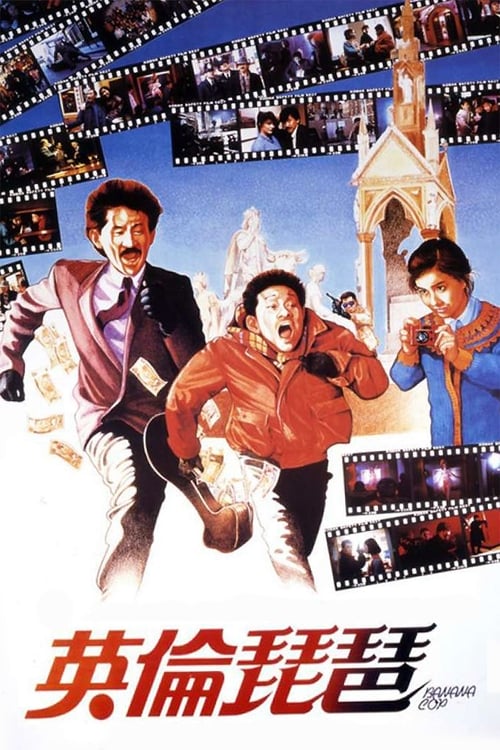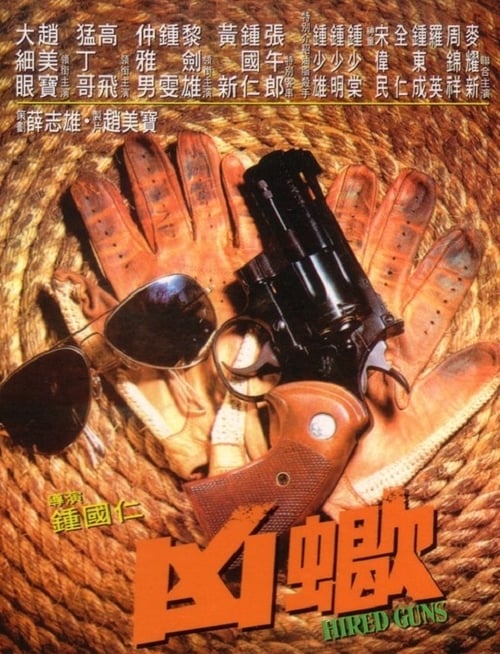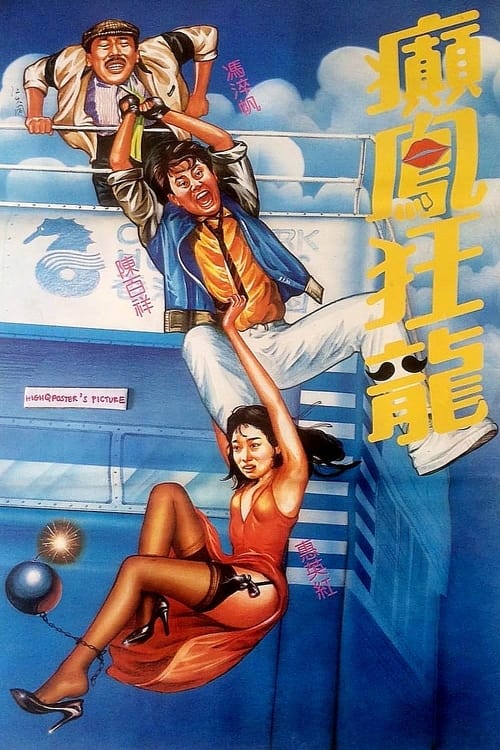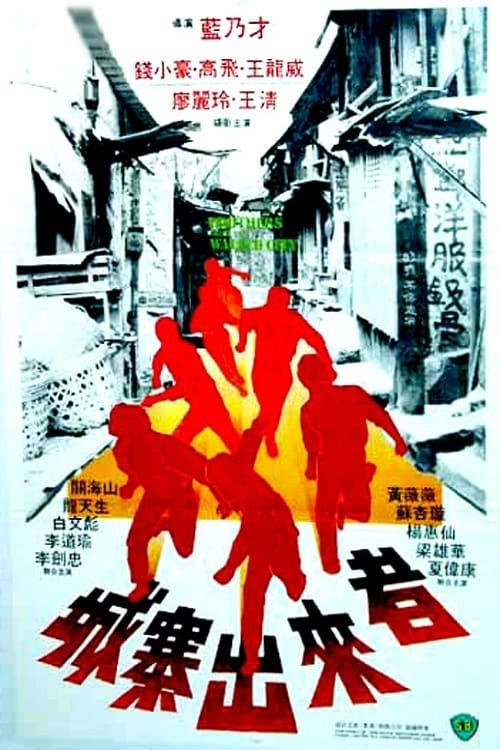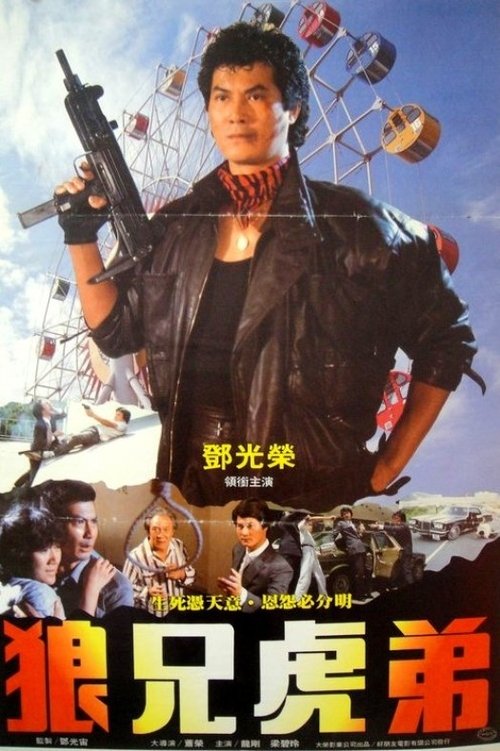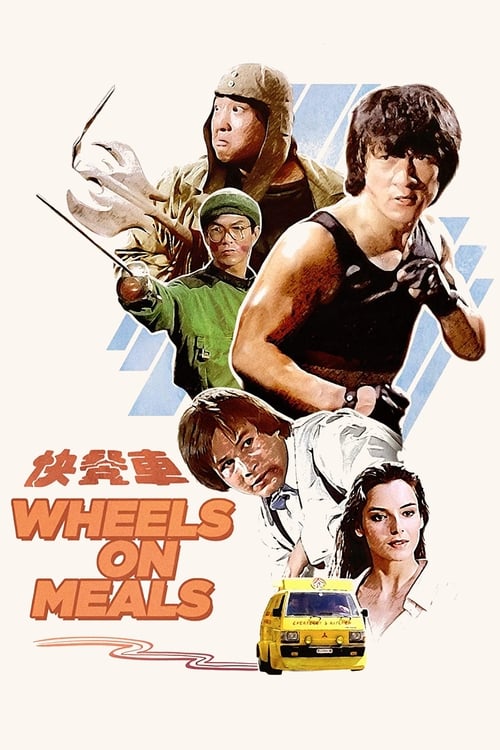
Ask Your Own Question
What is the plot?
The border between mainland China and Hong Kong is a desolate, windswept stretch of land, the air thick with tension and the scent of damp earth. Barbed wire glints under the grey sky, watchtowers loom like sentinels, and the distant hum of patrol vehicles echoes through the silence. It is the early 1980s, a time when the promise of Hong Kong's prosperity draws desperate men from the mainland, willing to risk everything for a chance at a better life. Five men--Tung (Lam Wai), Jing Chen, Lung Chiang, Ling Chow, and an unnamed fifth member--creep through the shadows, their breaths shallow, their hearts pounding. They are former soldiers, hardened by years of discipline and violence, now driven by poverty and ambition. Tung, their leader, is a calculating man with a past steeped in the People's Liberation Army. He is pragmatic, ruthless, and has already been living on the fringes of Hong Kong, scoping out a high-end jewellery store for a planned heist.
As they approach the border, the tension is palpable. Tung whispers, "We need to be careful. The police are watching us closely." The group moves with practiced stealth, but the border guards are vigilant. Suddenly, a spotlight cuts through the darkness, and a voice barks an order. The men scatter, but it is too late. A gunshot rings out, and the unnamed fifth member collapses, blood pooling beneath him. The others freeze for a moment, their faces etched with shock and fear, before Tung hisses, "Move! Now!" They flee, leaving their fallen comrade behind, their dreams of riches now tinged with the grim reality of death.
In Hong Kong, the city is a stark contrast to the desolation of the border. The streets are bustling, the air thick with the scent of street food and the hum of traffic. Tung leads the group to a small, run-down apartment in a crowded neighborhood--a hideout where they can regroup and plan their next move. The apartment is cramped, the walls stained, and the atmosphere heavy with paranoia. Tung lays out the plan: they will rob the jewellery store, make a quick fortune, and flee back to the mainland before the police can catch them. He shows them blueprints of the store, maps of the surrounding area, and the weapons they will use. "This is our chance," Tung says, his voice low and determined. "We do this right, and we'll never have to worry about money again."
But their plans are thrown into chaos when they learn that the jewellery store was the site of a failed robbery attempt earlier that day. The police are already investigating, and the store is under increased surveillance. Tung is frustrated but undeterred. "We'll wait three days," he says. "The heat will die down, and we'll strike then." The group agrees, but the delay only heightens their anxiety. They spend their days in the hideout, the tension mounting as they argue over the details of the heist. Jing Chen is nervous, his hands trembling as he checks his weapon. Lung Chiang is more aggressive, pacing the room and muttering about the risks. Ling Chow, the youngest and most naive, tries to keep the peace, but even he can feel the weight of their desperation.
To tide them over, Tung arranges a meeting with a local triad boss in a dimly lit, seedy bar. The triad boss, a shadowy figure with a reputation for ruthlessness, offers them a job: kill a seemingly unimportant man for a handsome fee. Tung hesitates, but the money is too tempting to refuse. "We need the cash," he says. "This will help us until the heist." The group agrees, and the hit is carried out successfully. But as they celebrate their success, they receive a chilling revelation: the man they killed was a police officer. The room falls silent, the weight of their actions sinking in. "We're in deep now," Jing Chen says, his voice trembling. "The police will be after us."
The police, led by a vigilant officer, are already investigating the failed robbery and the murder of their colleague. The police station is a chaotic hub of activity, with officers poring over reports and piecing together the evidence. The officer in charge is determined to bring the perpetrators to justice, and the pressure on the group intensifies. Tung tries to keep his crew focused, but the paranoia is overwhelming. "We have to be careful," he says. "The police are everywhere." The group is now wanted by both the police and the triad, their situation more dangerous than ever.
As the days pass, the group's vices begin to take hold. The allure of the big city, with its temptations and distractions, starts to erode their resolve. Tung's girlfriend, a beautiful hostess, becomes a source of tension, her brother one of the top men in the Big Circle Gang. Tung confides in her, revealing that he is an undercover cop, but she is cheating on him and betrays his secret to the triad. The group's cover is blown, and the police turn their back on them, deeming them expendable. "We're on our own now," Tung says, his voice heavy with resignation.
The triad, furious at the betrayal, captures one of the group members and subjects him to a brutal torture. In a harrowing scene, they force him to swallow a rat, a grotesque act of cruelty that leaves the others horrified and terrified. The group is now in a desperate situation, hunted by both the police and the triad. Tung tries to keep them together, but the tension is unbearable. "We have to stick together," he says. "If we don't, we're dead."
The heist looms, and the group prepares for the final confrontation. They move through the streets of Kwaloon City, a densely populated, enclosed urban area with narrow streets and alleys. The city is a maze, the perfect place for a chase and a shootout. The police are closing in, their presence felt in every shadow and every corner. Tung, Jing Chen, Lung Chiang, and Ling Chow are cornered, their backs against the wall. The final confrontation is a harrowing adventure of cops versus crooks, a relentless chase through the streets and alleys of the bustling city.
The police open fire, and the group fights back with everything they have. The streets are filled with the sound of gunfire, the air thick with smoke and the scent of blood. Tung is shot, his body crumpling to the ground. Jing Chen is hit, his life slipping away as he clutches his weapon. Lung Chiang is gunned down, his aggressive nature no match for the police's firepower. Ling Chow, the youngest and most naive, is the last to fall, his eyes wide with fear as he is struck down.
The police stand over the bodies of the group, their faces grim and haunted by the violence and loss. The jewellery store, now empty and silent, stands as a symbol of the end of the group's dream and the harsh reality of their choices. The film concludes with a sense of doom and the realization that there are no heroes in this story--only victims of their own desperation and the unforgiving city. The final shot is of the jewellery store, a silent witness to the tragedy that has unfolded, a reminder of the futility and tragedy of their actions.
What is the ending?
In the ending of "Long Arm of the Law," the main characters face the consequences of their actions as the police close in on them. The film culminates in a tense standoff, leading to a tragic resolution for the criminals involved.
As the climax unfolds, the remaining members of the gang are cornered by law enforcement. The tension escalates as they realize their options are dwindling. In a desperate attempt to escape, they engage in a violent confrontation with the police. Ultimately, the gang members are either killed or captured, highlighting the futility of their criminal lifestyle. The film concludes with a somber reflection on the consequences of their choices, leaving a lasting impact on the audience.
Now, let's delve into the ending in a more detailed, chronological narrative.
The final act begins with the gang, led by the determined and increasingly desperate character, who has been the driving force behind their criminal endeavors. They are holed up in a rundown hideout, the atmosphere thick with tension and fear. The walls are peeling, and the dim light casts long shadows, mirroring the dark path they have chosen. The gang members, once confident and brazen, now exhibit signs of anxiety as they hear the distant sirens approaching.
As the police close in, the leader tries to rally his crew, urging them to stick together and fight their way out. His voice is filled with a mix of bravado and desperation, revealing his internal struggle as he grapples with the reality of their situation. The other gang members, however, are visibly shaken, their faces pale and eyes wide with fear. They exchange glances, silently questioning their loyalty to a cause that seems increasingly hopeless.
The scene shifts to the outside, where police officers are strategically positioning themselves around the hideout. The tension is palpable as the officers communicate through radios, their expressions serious and focused. They are determined to bring the gang to justice, aware of the violent history that has led to this moment. The camera captures the grim determination on their faces, emphasizing the stakes of the confrontation.
Back inside, the gang members prepare for a fight, grabbing weapons and exchanging hurried words. The leader, trying to maintain control, shouts orders, but his voice cracks under the pressure. The fear in the room is almost suffocating, and the once tight-knit group begins to fracture as panic sets in. One member, overwhelmed by the impending doom, suggests surrendering, but the leader dismisses him angrily, insisting they will not go down without a fight.
As the police breach the hideout, chaos erupts. Gunfire fills the air, and the gang members scramble for cover. The camera captures the frantic movements, the sound of bullets ricocheting off the walls, and the shouts of both the police and the gang. In the midst of the chaos, one gang member is shot, collapsing to the ground, his life extinguished in an instant. The leader watches in horror, his face a mask of rage and despair as he realizes the cost of their choices.
In the ensuing confrontation, the remaining gang members are either killed or captured. The leader, in a final act of defiance, attempts to fight back but is ultimately overwhelmed by the sheer number of police officers. The camera lingers on his face, a mixture of anger and regret, as he is taken down. The scene is heavy with the weight of their decisions, the consequences of their criminal lifestyle laid bare.
As the dust settles, the surviving police officers survey the scene, their expressions a mix of relief and sorrow. The camera pans over the fallen gang members, a stark reminder of the violence that has unfolded. The film closes with a somber tone, leaving the audience to reflect on the tragic fate of the characters. The leader, once a figure of power and control, is now just another casualty of a life lived outside the law, his dreams shattered and his legacy one of destruction.
In the end, the film serves as a poignant reminder of the long arm of the law and the inevitable consequences that follow a life of crime. Each character's fate is sealed by their choices, leaving a haunting impression of the cost of their actions.
Is there a post-credit scene?
The movie "Long Arm of the Law," produced in 1984, does not have a post-credit scene. The film concludes without any additional scenes or content after the credits roll. The story wraps up with the resolution of the main plot, focusing on the themes of crime, justice, and the consequences faced by the characters involved. The ending leaves the audience with a sense of closure regarding the fates of the protagonists and the law enforcement officers pursuing them.
What motivates the main character, Inspector Lee, in his pursuit of the criminals?
Inspector Lee is driven by a strong sense of justice and duty. He feels a personal responsibility to uphold the law and protect the citizens of Hong Kong. His determination is fueled by the emotional weight of the crimes committed by the gang, which he sees as a direct threat to the safety and order of the community.
How does the gang's heist plan unfold throughout the film?
The gang meticulously plans a series of robberies, starting with a jewelry store heist that showcases their precision and ruthlessness. Each step of their plan is executed with careful coordination, but as the police close in, tensions rise within the gang, leading to mistakes and ultimately their downfall.
What role does the character of 'Ah Choi' play in the gang's dynamics?
Ah Choi serves as a pivotal character within the gang, often acting as the voice of reason. He struggles with the moral implications of their actions and begins to question their violent methods. His internal conflict adds depth to the gang's dynamics, highlighting the tension between loyalty and morality.
How does the relationship between Inspector Lee and his team evolve throughout the film?
Inspector Lee's relationship with his team is initially strained due to their differing approaches to law enforcement. However, as they face the escalating threat from the gang, they begin to bond over shared experiences and a common goal. This evolution showcases their growth as a cohesive unit, united by their commitment to justice.
What are the consequences faced by the gang members as the story progresses?
As the story progresses, the gang members face increasing pressure from law enforcement, leading to paranoia and distrust among them. Their initial confidence begins to crumble, resulting in violent confrontations and betrayals. Ultimately, their criminal activities lead to tragic outcomes, highlighting the harsh realities of their choices.
Is this family friendly?
"Long Arm of the Law," produced in 1984, is not considered family-friendly due to several potentially objectionable elements. Here are some aspects that might be upsetting for children or sensitive viewers:
-
Violence: The film contains scenes of intense violence, including shootouts and physical confrontations that may be graphic and disturbing.
-
Crime Themes: The central plot revolves around criminal activities, including robbery and betrayal, which may not be suitable for younger audiences.
-
Mature Language: There is the use of strong language throughout the film, which may not be appropriate for children.
-
Emotional Turmoil: Characters experience significant emotional distress, including betrayal and loss, which could be upsetting for sensitive viewers.
-
Dark Themes: The film explores themes of morality, justice, and the consequences of crime, which may be too complex or heavy for younger audiences to process.
These elements contribute to a tone that is more suited for adult viewers rather than children.

